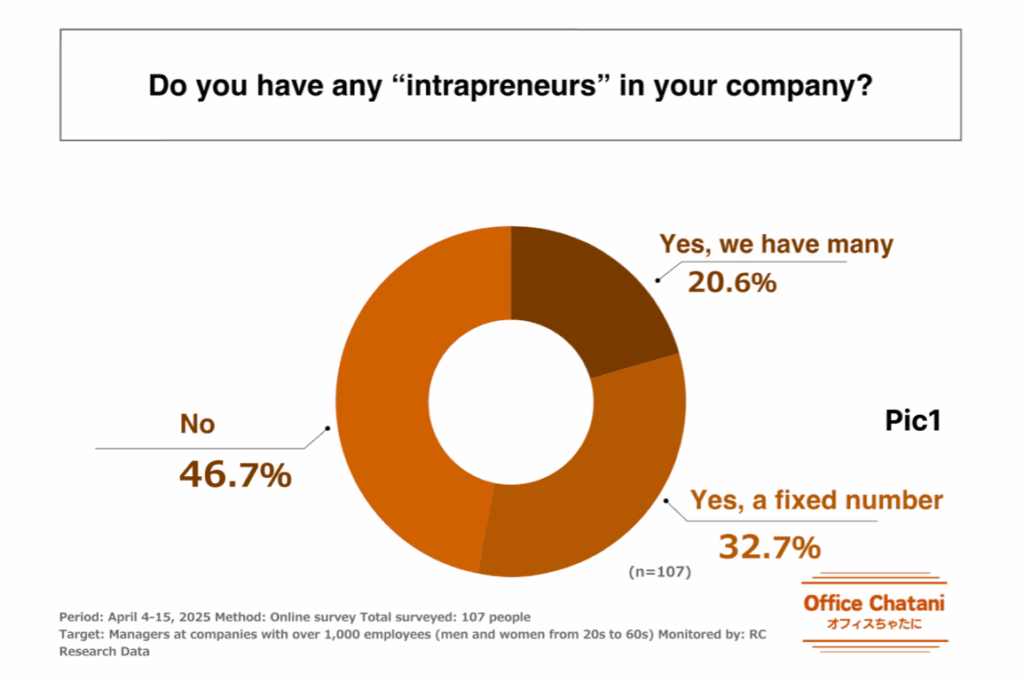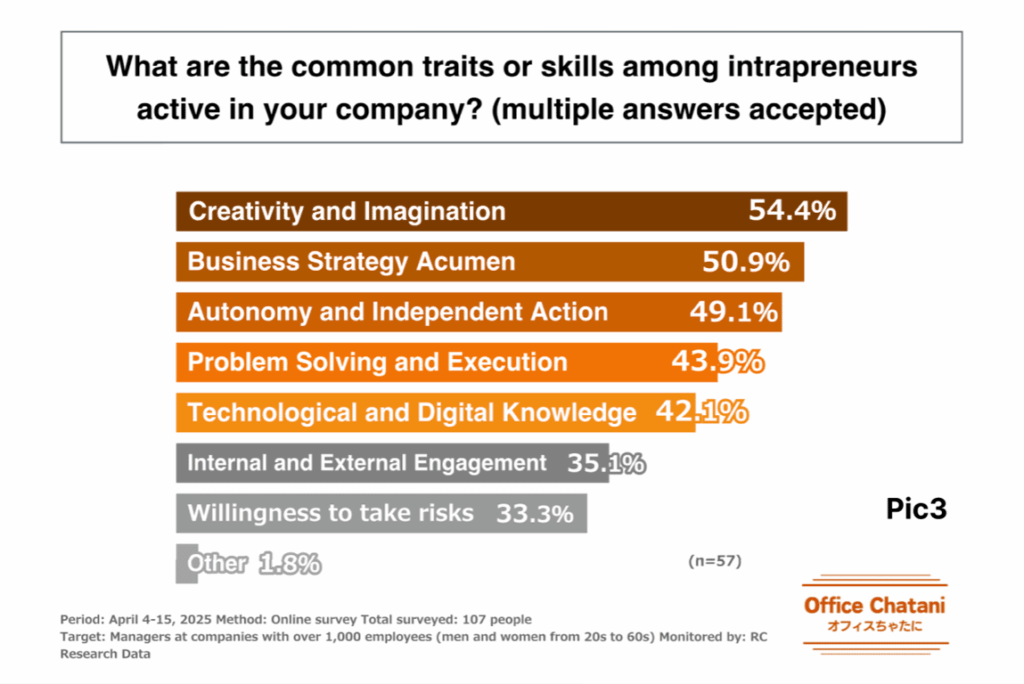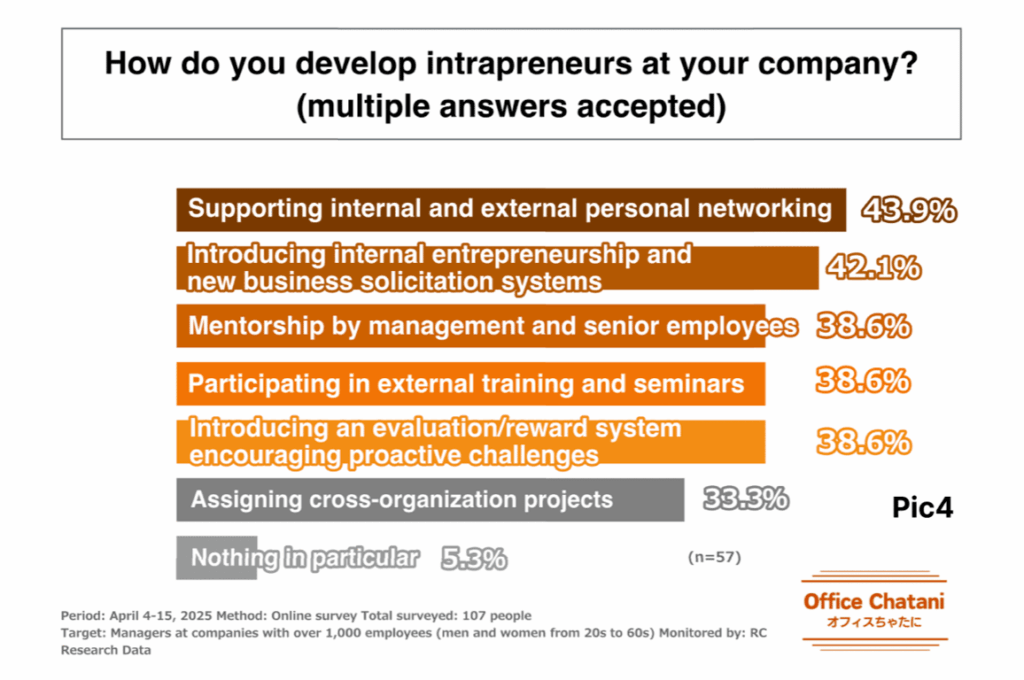Adapting to the VUCA Age: The Rise of Intrapreneurs
In an era defined by volatility, uncertainty, complexity, and ambiguity (VUCA), large corporations are increasingly pressured to respond swiftly to shifting market dynamics and customer needs. Business creation is no longer optional—it is imperative for maintaining competitiveness.
However, rigid internal structures, risk-averse cultures, and complex decision-making processes often make it difficult for large organizations to adapt. Within this context, intrapreneurs—employees who launch new business initiatives from within their companies—have emerged as a critical source of internal innovation. To explore this trend, Office Chatani conducted a targeted survey of senior managers at large corporations.
Key Survey Findings
More Than Half of Large Companies Have Intrapreneurs
In response to the question, “Do you have any intrapreneurs in your company?”, 53.3% of respondents said “Yes” (32.7% reported having a fixed number; 20.6% said “many”), while 46.7% reported having none. These results indicate that more than half of large corporations currently house active intrapreneurs.

Most Intrapreneurs Are in Their 40s
The most common age group for intrapreneurs was reported as 40–49 years old (40.4%), followed by 30–39 (19.3%), suggesting that mid-career professionals form the core of innovation within these firms.

Top Traits: Creativity, Strategy, and Independence
When asked about the common skills or traits among intrapreneurs, the top three responses were:
- Creativity and Imagination (54.4%)
- Business Strategy Acumen (50.9%)
- Autonomy and Independent Action (49.1%)

Several other attributes also surpassed 40%, indicating that intrapreneurs often possess a well-rounded skill set essential for navigating internal challenges while driving new initiatives.
Networking Support Seen as Critical to Development
For companies that already have intrapreneurs, the leading approach to developing them is “supporting internal and external personal networking” (43.9%). Other key methods include:
- Internal entrepreneurship and business proposal systems (42.1%)
- Mentorship from senior staff (38.6%)
- Participation in external training/seminars (38.6%)
- Evaluation and reward systems for proactive efforts (38.6%)

These findings suggest that multi-channel development strategies—including structured programmes and informal mentorship—are being used to build a robust innovation culture.
In Companies Without Intrapreneurs: Barriers and Missed Opportunities
Among companies lacking intrapreneurs, more than 70% reported that they had not taken any initiative to cultivate such talent. For those that had, the most common action was providing training and education related to new business creation.
The top three challenges identified by these companies in fostering intrapreneurship were:
- Lack of internal role models
- Insufficient resources (time, budget, personnel)
- Absence of evaluation systems or a challenge-friendly culture
These barriers highlight the organizational inertia that can inhibit innovation in larger firms.
Survey Details
- Period: April 4–15, 2025
- Method: Online survey
- Participants: 107 managers (male and female, ages 20s to 60s) from companies with over 1,000 employees
- Monitored by: RC Research Data









